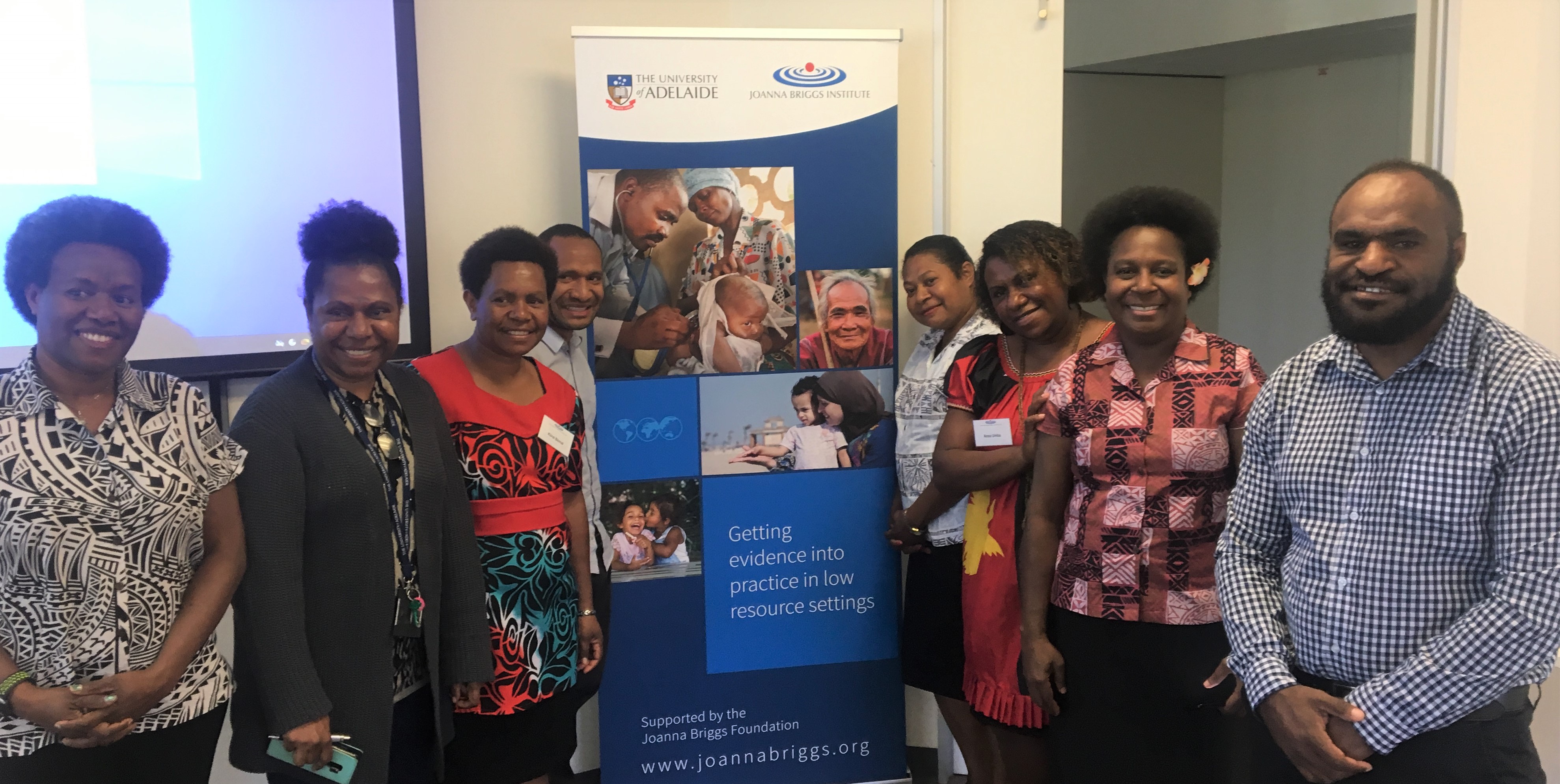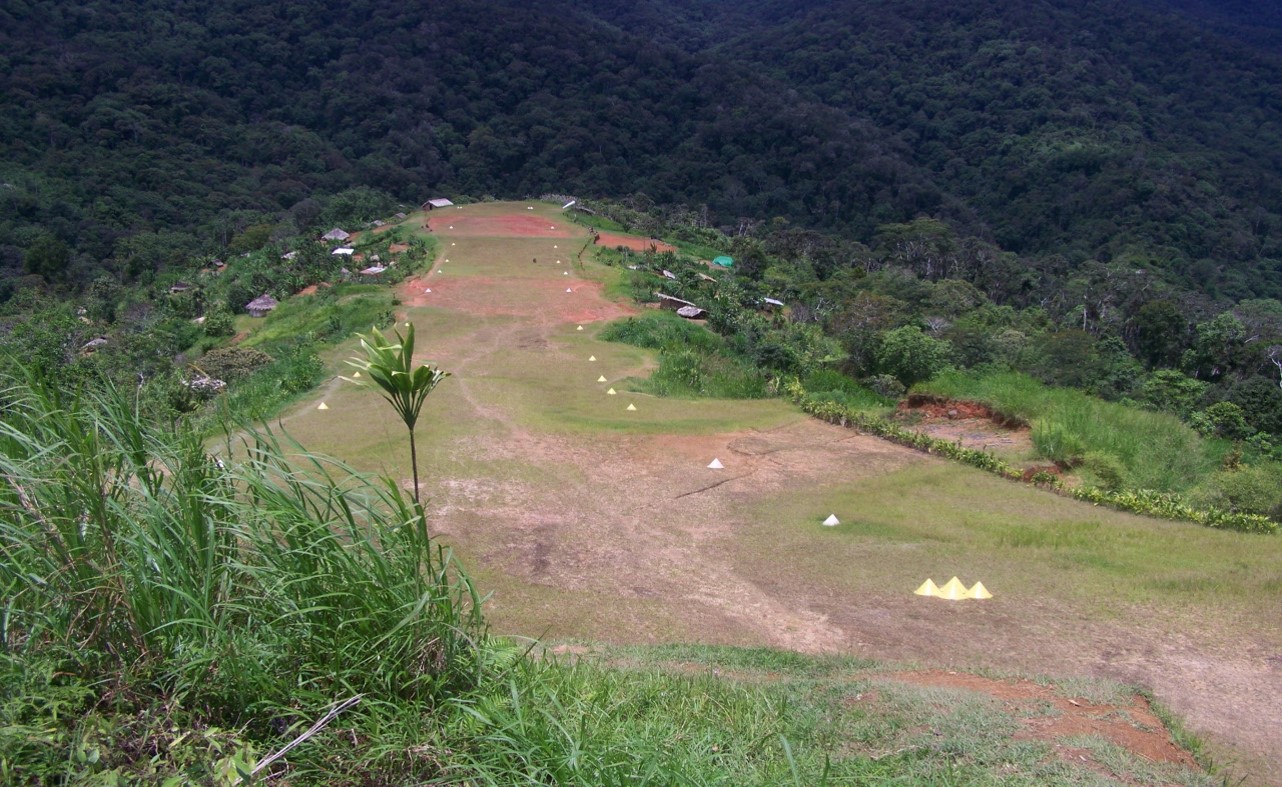
Creating ripples of change in PNG
Health professionals are learning to lead practice change for evidence-based healthcare
JBI’s philanthropy program has enabled seven health professionals from Papua New Guinea to participate in the JBI Evidence Implementation Training Program (formerly Evidence-based Clinical Fellowship Program) in Adelaide, Australia.
The philanthropy program is part of JBI’s capacity building efforts for low- and middle-income countries. The seven health professionals, who include doctors, midwives, a pharmacist and a physiotherapist, are the scholarship winners from a field of applicants following a merit-based selection process. The six-month scholarship program includes travel and accommodation in Adelaide to attend two weeks of intensive training and to work closely with JBI staff.

The seven health professionals recently completed the first week of intensive training to learn about evidence-based healthcare, and to be equipped with the knowledge and skills to implement evidence into practice in their work settings. Importantly, these health professionals have been developing the communication and leadership skills required to instigate and sustain practice change to improve health outcomes in their communities. This sharing of knowledge, empowering a health professional to lead practice change in their community, is symbolised in JBI’s logo of a red pebble of knowledge dropping into the water and the rippling effect that follows.
The first week of training in Adelaide concluded with each participant presenting the outline of their evidence implementation project to JBI staff, students and visiting scholars. Dr Lucy Lizarondo, one of the training facilitators of the Evidence Implementation Training Program, said:
“The participants reported some of the unique challenges and potent threats to evidence-based healthcare in PNG, including lack of financial resources (e.g. lack of transportation to access care, particularly in rural areas); health system constraints (e.g. limited supplies and human resources); and the cultural beliefs of patients. Truly a complex context but very interesting, and we heard some inspirational stories, too”.
Projects include eliminating avoidable complications and deaths resulting from inaccurate fluid balance management in a 28-bed surgical ward in the remote highlands; and tuberculosis (TB) treatment. TB is the leading cause of hospitalisation and death in Papua New Guinea, and multi-drug resistant TB in Papua New Guinea has been referred to as a ‘national crisis in the making’ by the World Health Organization.

Another project aims to prevent mother to child transmission of HIV among pregnant women. The project is based at the only referring facility in the Eastern Highlands Province which covers 11,157km2, and will include investigating why the number of defaulting patients is so high and increasing.
“Some [patients] may be in denial or fearful. Others may have received herbal treatment or are attempting a faith-based cure. For others, it may be healthcare workers’ negative attitudes, financial constraints and lack of transport”, explains Korai Bomai, Clinical Midwife.
The seven healthcare professionals are now back in PNG. Over the six-month Evidence Implementation Training Program, the participants will continue to be supported and mentored by JBI staff remotely as they work on evidence implementation projects to improve health outcomes in their local communities.
They are charged with a huge responsibility, but with their training at JBI, together with the ongoing support of their JBI training facilitators, they are equipped to succeed. Each hold in their hands a pebble of knowledge which will create ripples of change across Papua New Guinea.
We look forward to welcoming this inspirational group back to Adelaide in May 2020 to hear the results of their evidence implementation projects.
Further reading
Previous EITP participant from PNG, James Temop, and his impact story
Evidence Implementation Training Program (EITP)